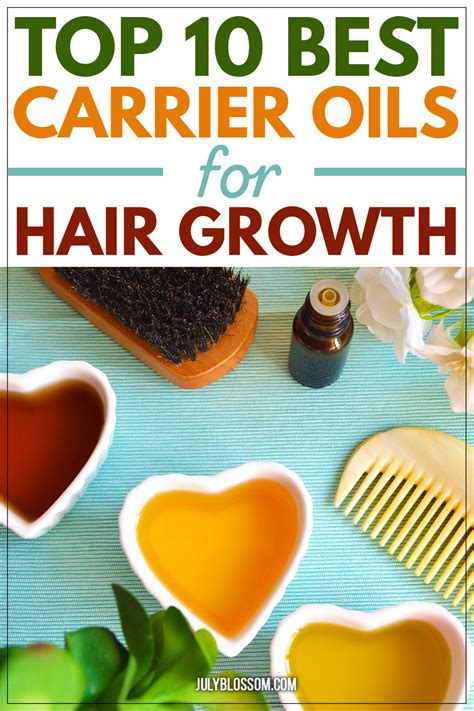Why Carrier Oils Matter for Hair Health
Carrier oils, derived from plants and nuts, play a crucial role in hair care regimens. They possess nourishing properties that penetrate the hair shaft, delivering essential nutrients and moisture to improve hair health.

How Carrier Oils Benefit Hair
- Nourishment: Rich in vitamins, minerals, and fatty acids, carrier oils replenish lost nutrients, strengthening the hair structure and promoting growth.
- Moisturization: Carrier oils penetrate deeply into the hair shaft, restoring moisture and preventing dryness, breakage, and split ends.
- Scalp Health: Some carrier oils have anti-inflammatory and antibacterial properties, which help soothe scalp irritations, reduce dandruff, and promote a healthy scalp environment.
Top 5 Best Carrier Oils for Hair
1. Argan Oil
- Benefits: Rich in antioxidants, vitamin E, and omega-6 fatty acids, argan oil helps protect hair from damage, repairs split ends, and restores shine.
- Usage: Apply a few drops to damp hair and massage into scalp. Leave in for an hour or overnight for deep conditioning.
2. Coconut Oil
- Benefits: Lauric acid in coconut oil penetrates the hair shaft deeply, nourishing and strengthening the hair. It also provides moisture and prevents protein loss.
- Usage: Apply coconut oil liberally to dry hair and scalp. Leave in for 30 minutes or overnight.
3. Jojoba Oil
- Benefits: Similar to the natural oils produced by the scalp, jojoba oil balances oil production, prevents dryness, and strengthens hair.
- Usage: Massage a few drops into scalp and hair. Leave in for 30 minutes or apply as an overnight treatment.
4. Olive Oil
- Benefits: Rich in oleic acid and vitamin E, olive oil nourishes the hair, prevents hair loss, and promotes a healthy scalp.
- Usage: Apply olive oil directly to hair and scalp. Leave in for an hour or overnight.
5. Avocado Oil
- Benefits: Avocado oil contains vitamins A, D, E, and biotin, which nourish, strengthen, and promote hair growth. It also moisturizes and repairs damaged hair.
- Usage: Apply avocado oil to damp hair and scalp. Leave in for 30 minutes or overnight.
How to Choose a Carrier Oil
- Hair Type: Different carrier oils are suitable for different hair types. Oily hair may benefit from lighter oils like jojoba or tea tree oil, while dry hair may require heavier oils like coconut or avocado oil.
- Scalp Condition: Carrier oils with antibacterial and anti-inflammatory properties, such as tea tree or rosemary oil, can be beneficial for scalp irritations.
- Personal Preference: Choosing a carrier oil that you find pleasant to use is important. Consider the fragrance, texture, and absorption rate of the oil.
Carrier Oil Blends
To maximize the benefits of carrier oils, consider blending them according to your hair needs. For example:
| Purpose | Carrier Oil Blend |
|---|---|
| Nourishing and Moisturizing | Argan oil, coconut oil, jojoba oil |
| Scalp Treatment | Tea tree oil, rosemary oil, lavender oil |
| Hair Growth | Avocado oil, castor oil, coconut oil |
Safety Considerations
- Always perform a patch test before applying carrier oils to a large area of skin.
- Dilute carrier oils with water or a mild shampoo before applying them to the scalp or hair.
- Avoid using carrier oils that are known to cause allergies or skin irritation.
Conclusion
Carrier oils are an essential part of a comprehensive hair care routine. They nourish, moisturize, and protect hair from damage, promoting healthy hair growth and a vibrant scalp. By understanding the benefits and properties of different carrier oils, you can choose the best one for your hair type and needs.
